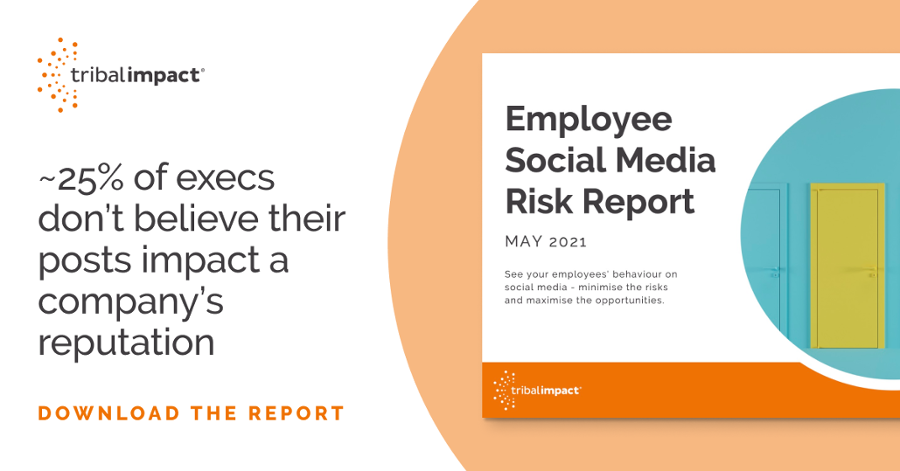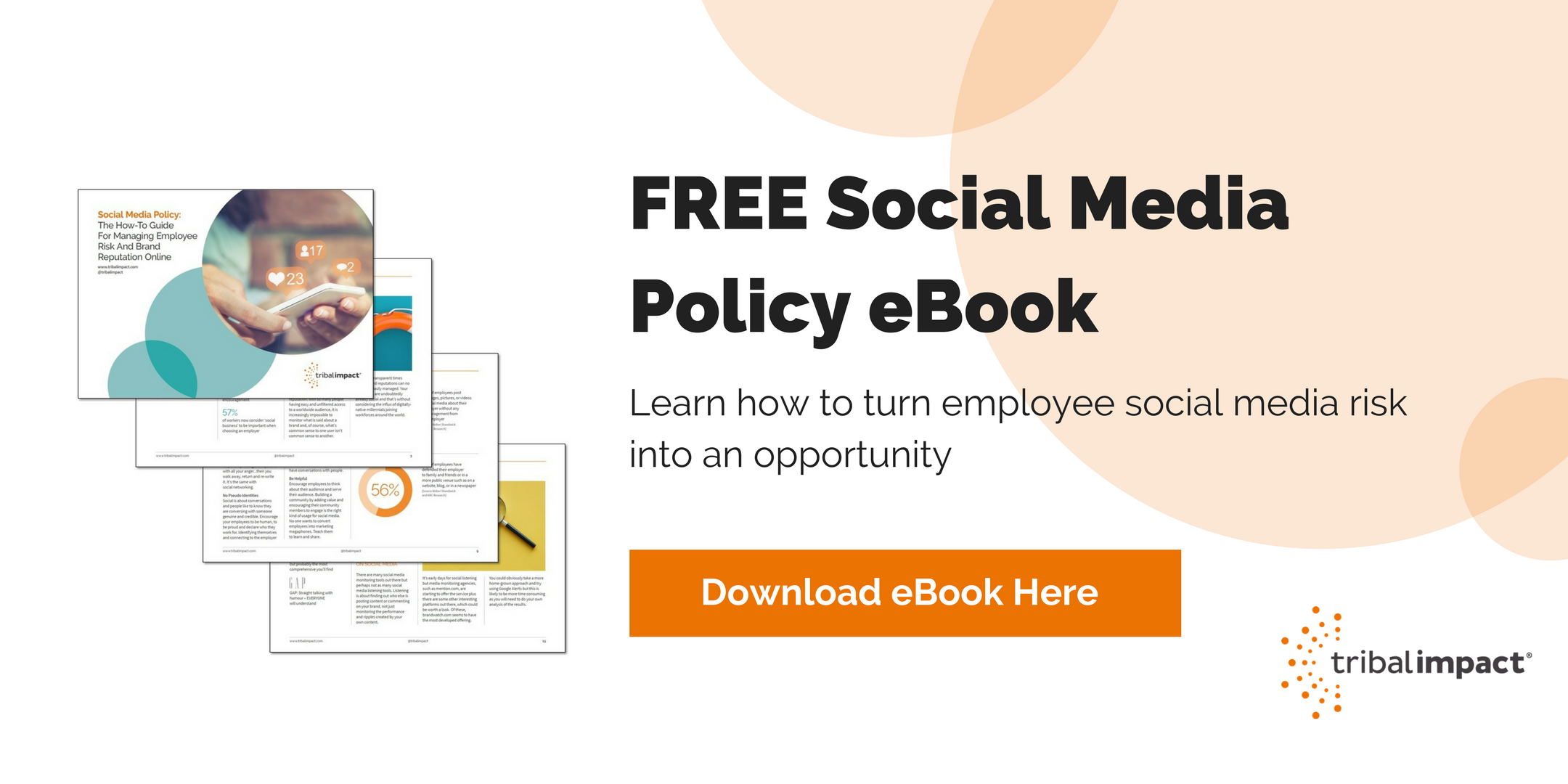
When most of us think of social media policies, a list of "Do Nots" spring to mind. But if you approach it this way, you stand to lose all the benefits of social media. Adding a healthy mix of "Do's" means you can also empower your employees to be genuinely social, not robots.
What should a social media policy include?
A social media policy should include a striking delicate balance: it needs to protect your brand and guard against legal and security risks. Basic issues are always a must, such as sharing confidential company and client information or posting content that may be deemed derogatory, offensive or defamatory.
Yet equally, your employees are the real key to building up an authentic brand and driving opportunities. Edelman’s Trust Barometer found that technical experts were the most trusted source online (that's your product and knowledge worker gurus). And even everyday employees were shown to bring much-needed brand trust.
If you want to provide a perfect balance of protection and freedom, here are five issues your social media policy should include in order to address besides the basics.
1. The Benefits Of Social Media
While it's important to state early on that your social media policy is in place to protect against reputational risks that using social media presents, it's important to balance this with a message that encourages your employees to embrace it.
It’s, therefore, best that your social media policy should include a positive message of why you’re embracing social media and the benefits that it can bring to your company – and your employees. In the same way, when mentioning the risks, you should make it clear that you are protecting their own reputation as much as your own.
See an example best-practice social media policy with our Social Media Policy Pack.
2. Your Brand Guidelines
Most employees are all too aware that what they say on social media, even on personal accounts, could potentially reflect badly on their employer's brand. It's still wise to remind them of this and ask them to follow brand guidelines at all times.
While you may have a brand guidelines document, it helps to include this in your social media policy. What do you expect in terms of tone of voice, opinions and etiquette?
For brand protection, employees should always be asked to make it clear that their views are their own and do not reflect your brand's views.
3. Tips On How To Build Their Professional Brand
Your social media policy is a great place to empower your employees to build their professional brand with best-practice advice on how to interact online effectively, such as:
- Ensuring that they share a mixture of third-party content, branded content and (approved) company and team news
- Sharing content that is educational and helpful to their audience
- Being themselves and letting their personality shine through
- Using a mixture of content formats
- Only posting or commenting on topics within their area of expertise
- Not spamming their network with constant self-promotional posts or irrelevant content
- Backing up opinions with facts

4. Avoid Spats/Picking Fights
No matter how well your employees follow brand guidelines and social media training, at some point a comment or post could quickly escalate into a social media spat. It just takes one person to take what they say the wrong way (accidentally or intentionally), or for an employee to feel compelled to set the record straight on a complaint.
Such conversations are public and have the potential to go viral and cause significant reputational damage. Your social media policy should include a reminder for employees to retain a neutral position by sticking to the facts and never attempt to win an argument but instead refer it to the appropriate team/person to deal with it.
5. Be Wary Of Sharing Company And Client News
Your employees may well be aware that certain company information is strictly confidential and off-limits for sharing on social media. Yet there are still inadvertent ways that they could share something that may harm your business objectives, such as.
- Sharing thoughts on a project which aren’t strictly confidential but lead into a bigger marketing campaign.
- Celebrating client “wins”
- Sharing photos that have confidential information in the background
- Revealing new clients via geo-tagging posts
Social media policies have come a long way since the draconian ones of old but one thing remains: they have the power to make or break your brand. We hope these measures help you find that perfect balance between opportunity and protection – where your employees feel you care just as much about their brand as yours.
Our social media policy pack provides more ideas for Do's and Don'ts along with a best-practice example so you can see how to put it all together.
Editor's Note: This blog was originally published in August 2020 and has been completely refreshed and updated.


